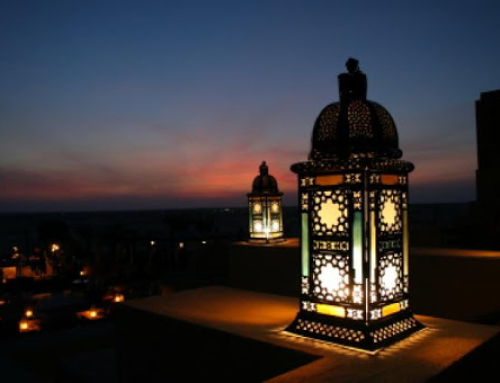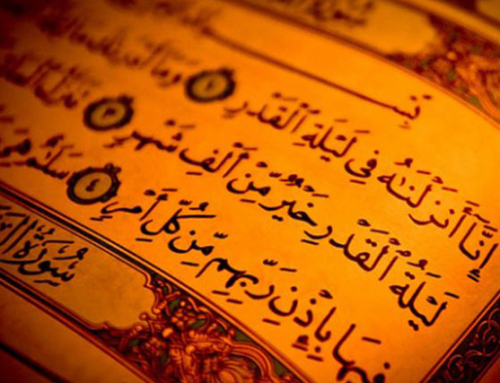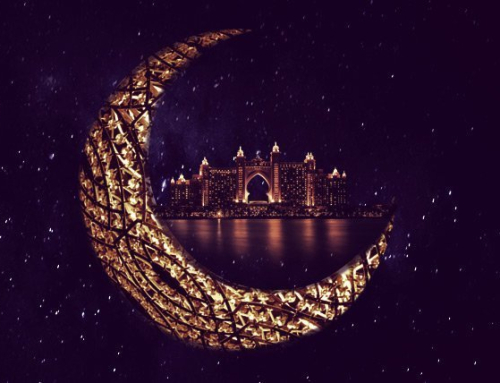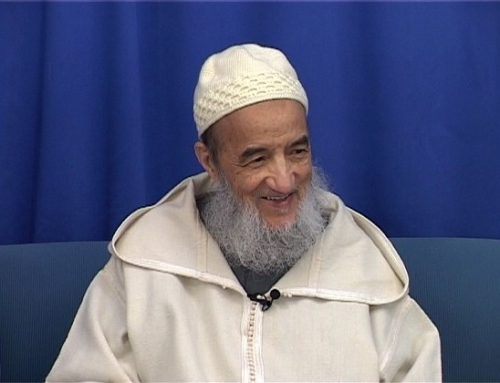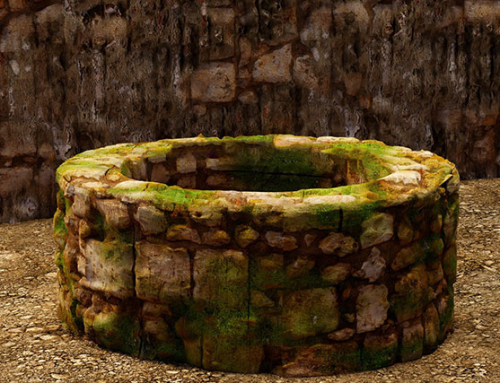Mounir Birouk
July 5, 2014
In the month of Ramadan, Muslims are required to apply themselves more and increase their worship more than they do in ordinary days. In addition, Ramadan is also a more opportune season for contemplation and re-discovery of the self. Because of its deep transformative power, Ramadan will always be a sign of God which refers to His might and His mercy.
Everyone with a living and alert heart should wonder at the changes which the thirty blessed days of Ramadan bring about in the lives, behaviors and psyche’s of millions of people around the globe. Only blind or inattentive careless hearts would miss noticing the transformative power of those thirty days. People in disparate places and in varied, and sometimes unfavorable, environments adapt so quickly to the metabolic and behavioral changes which their willing abstinence from food, drinks and sexual intercourse for long hours brings about.
Yet, what is more awe-inspiring and subliminal in my view is the deep spiritual changes which Ramadan incurs overnight in the souls and hearts of millions of the believers. By their very nature, spiritual transformations do not occur overnight or at will. Yet, from its very first night, Ramadan exudes a spiritual aura which fills the space, and its effects one inwardly experiences himself and outwardly perceives in the conduct of individuals around him. People flock to the mosques, offer voluntary prayers, recite the Quran even more, restrain themselves from the bounties of life, donate, help the needy and do the good.
But why and how do believers come to transcend their base and earthly impulses in such a remarkable way, and over the same period of time? We find the answer in the tradition of the prophet [God bless him and grant him peace] who informs us that gentle breezes of divine nature are exuded in certain days in this world. The messenger of God [God bless him and grant him peace] says: “do expose yourselves to His blessed breezes; may one breeze of His meet one of you that he would never be wretched”.
A metaphor from the world of commerce might draw the meaning closer to our minds. In typical days, the merchant exerts extraordinary effort and wades his way through the hostile forces in the market to strike lucrative deals. Yet, it so happens that the winds unexpectedly blow in his favor in ways which allow him to make with little endeavors big profit margins. Ramadan will always remain a telling sign of God’s providence, existence and mercy, but “how many a sign within the heavens and earth do they pass over while they, therefrom, are turning away” [12:105].
Ramadan is one more evidence that the heart of man and woman- which is the sight of the ever-lasting struggle between the celestial divine call and the earthly impulses- is able to forgo the latter and join the soul in its spiritual ascent. In the blessed temporal space of Ramadan, major elements of the objective inimical forces are cast aside, and the victory is thus ensured with a slight effort. Abu Hurairah, [may God be pleased with him] quoted the Prophet [God bless him and grant him peace] as saying: “When the month of Ramadan comes, the gates of Paradise are opened and the gates of the Hellfire are closed, and the devils are chained” (Reported by al-Bukhari).
Although the circumstances are well to the advantage of the believers- the divine zephyrs blowing and the inimical satanic forces neutralized- some believers would still fail the test and lose the battle. Their willingness to readily succumb to the frivolous and petty urges of their desires is the cause of their wretchedness. The spirit of Ramadan is better grasped if one recognizes that Ramadan is not an end in itself, but a well-structured thirty-days school where one learns life-long spiritual ethics. In other words, it is a stepping-stone for approaching the Creator and the Sustainer of this universe well beyond those thirty days.
“And worship your Lord until there comes to you the certainty (death)” [15:99].






